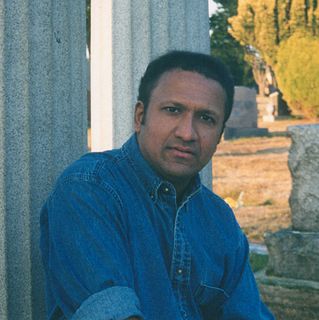A Quote by S. T. Joshi
The decline of witch-belief was . . . entirely the product of religious skepticism. . . . The Catholic Church did not reform itself on this matter; it was forced by outside pressure to reform. To be sure, the Protestant churches were no better in this regard; it is simply that they had less time - only two or three centuries - to engage in the torching of witches. After all, John Wesley, the founder of Methodism, stated quite correctly that disbelief in witches meant a disbelief in the Bible.
Quote Topics
After
Belief
Belief In The Bible
Better
Bible
Catholic
Catholic Church
Centuries
Church
Churches
Correctly
Decline
Did
Disbelief
Engage
Entirely
Forced
Founder
Had
Itself
John
Less
Less Time
Matter
Meant
Only
Outside
Pressure
Product
Protestant
Quite
Reform
Regard
Religious
Simply
Skepticism
Stated
Sure
Three
Time
Two
Were
Witch
Witches
Related Quotes
The Church worked hard at it night and day during nine centuries and imprisoned, tortured, hanged, and burned whole hordes and armies of witches, and washed the Christian world clean with their foul blood. Then it was discovered that there was no such thing as witches, and never had been. One doesn't know whether to laugh or to cry. Who discovered that there was no such thing as a witch - the priest, the parson? No, these never discover anything.
Witches never existed, except in people’s minds. All there was in the olden days was women and some men who believed in herbal cures and in folklore and in the wish to fly. Witches? We’re all witches in one way or another. Witches was the invention of mankind, son. We’re all witches beneath the skin.
I think that all women are witches, in the sense that a witch is a magical being. And a wizard, which is a male version of a witch, is kind of revered, and people respect wizards. But a witch, my god, we have to burn them. It's the male chauvinistic society that we're living in for the longest time, 3,000 years or whatever. And so I just wanted to point out the fact that men and women are magical beings. We are very blessed that way, so I'm just bringing that out. Don't be scared of witches, because we are good witches, and you should appreciate our magical power.
Unlike wizards, who like nothing better than a complicated hierarchy, witches don't go in much for the structured approach to career progression. It's up to each individual witch to take on a girl to hand the area over to when she dies. Witches are not by nature gregarious, at least with other witches, and they certainly don't have leaders.
Granny Weatherwax was the most highly-regarded of the leaders they didn't have.
The intention of Paul VI with regard to what is commonly called the Mass, was to reform the Catholic liturgy in such a way that it should almost coincide with the Protestant liturgy - but what is curious is that Paul VI did that to get as close as possible to the Protestant Lord's supper... there was with Paul VI an ecumenical intention to remove, or at least to correct, or at least to relax, what was too Catholic, in the traditional sense, and, I repeat, to get the Catholic Mass closer to the Calvinist Mass.
Certainly the affirmative pursuit of one's convictions about the ultimate mystery of the universe and man's relation to it is placed beyond the reach of law. Government may not interfere with organized or individual expressions of belief or disbelief. Propagation of belief - or even of disbelief - in the supernatural is protected, whether in church or chapel, mosque or synagogue, tabernacle or meeting-house.
Your average witch is not, by nature, a social animal as far as other witches are concerned. There's a conflict of dominant personalities. There's a group of ringleaders without a ring. There's the basic unwritten rule of witchcraft, which is 'Don't do what you will, do what I say.' The natural size of a coven is one. Witches only get together when they can't avoid it.
By the age of fifteen, I had convinced myself that nobody could give a reasonable explanation of what he meant by the word 'God' and that it was therefore as meaningless to assert a belief as to assert a disbelief in God. Though this, in a general way, has remained my position ever since, I have always avoided unnecessarily to offend other people holding religious belief by displaying my lack of such belief, or even stating my lack of belief, if I was not challenged.
The Protestant reformation was an attempt to recast the Christian faith in terms of the new learning of the 16th century, the enlightenment learning. It was the first time that the Christian church did not have the capacity to keep itself unified as it recast itself, so it split into Protestant and Catholic traditions.
I let go of the notion that the Bible is a divine product. I learned that it is a human cultural product, the product of two ancient communities, biblical Israel and early Christianity. As such, it contained their understandings and affirmations, not statements coming directly or somewhat directly from God. . . . I realized that whatever "divine revelation" and the "inspiration of the Bible" meant (if they meant anything), they did not mean that the Bible was a divine product with divine authority.
The religious conflicts of the Reformation era were never simply and only about religion, because religion during this era as in the Middle Ages that preceded it, informed and was meant to inform every domain of life. Violence involving religion and touching other areas of life took many forms: from the Protestant destruction of Catholic religious art and objects in iconoclasm, to Catholic executions of Protestants who refused to renounce their views, to major destructive conflicts such as the French Wars of Religion and the Thirty Years' War.

































